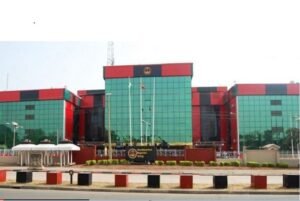Aliko Dangote’s latest push for the Federal Government to ban the importation of refined petroleum products has ignited a storm of opposition from independent marketers, industry groups, and energy experts who warn the move could lead to market distortion and monopolistic control.
Speaking at the Global Commodity Insights Conference on West African Refined Fuel Markets, hosted by the Nigerian Midstream and Downstream Petroleum Regulatory Authority and S&P Global Insights, Dangote urged President Bola Tinubu to extend the government’s “Nigeria First” policy to include petrol, diesel, and other refined fuels. He argued that importation is undermining local refining operations, including his $20 billion facility.
“The Nigeria First policy announced by His Excellency, President Bola Tinubu, should apply to the petroleum product sector and all other sectors,” Dangote said. He decried what he described as “dumping” of cheap and toxic fuel into the country, saying, “And to make matters worse, we are now facing increased dumping of cheap, often toxic petroleum products, some of which are blended to substandard levels that would never be allowed in Europe or North America.”
Dangote further claimed that subsidised Russian petroleum products are being shipped into Africa at discounted prices, destabilising local markets. “Due to the price caps on the Russian petroleum products, discounted petroleum products produced in Russia or with discounted Russian crude find their way to Africa… In Nigeria, due to this unfair competition, this price is just about 60 cents, even cheaper than Saudi Arabia.”
But key players in Nigeria’s downstream sector were quick to reject the proposal.
Chinedu Ukadike, spokesperson of the Independent Petroleum Marketers Association of Nigeria (IPMAN), said the idea would stifle competition and hurt the market. “We independent marketers will depart from that request. If the government does that, that means we will not be able to check inflation and monopoly, since it is the only refinery operating in the country now,” he warned.
He challenged Dangote’s claim that imports hinder local refining. “Importation won’t kill local businesses or refineries; it will strengthen them. It will ensure local refineries step up their game. I don’t agree with Dangote on this.”
Billy Gillis-Harry, President of the Petroleum Products Retail Outlet Owners Association of Nigeria (PETROAN), echoed similar concerns. “We are running a free economy. There’s no reason why any one company should have an overarching value on the entire industry… Importation is not killing the economy. Importation is stabilising the sources of petroleum products.”
He added that banning refined fuel imports could jeopardize energy security. “Importation of all products is useful. However, those that can be produced in Nigeria, like toothpicks, garri, egusi soup… should be banned. But importation of refined petroleum products should not be banned.”
Energy law expert, Professor Dayo Ayoade of the University of Lagos, cautioned against any policy that would create a private monopoly over fuel supply. “No, we cannot have a ban on petroleum imports… We can’t rely solely on the Dangote refineries. That would give a monopoly to a private individual.”
Ayoade further warned of legal and trade implications. “International trade law does not really sit well with banning things. So, we have to be clever about how we do it.”
Dangote, however, insisted the goal is not to monopolize the sector but to protect domestic investment. “Let me take this opportunity to address concerns around monopoly and dominance. The reality is that too many people who have the means and the opportunity to contribute meaningfully to our nation’s growth choose instead to criticise from the sidelines while investing their wealth abroad.”
To support his claim of capacity, Dangote revealed that his refinery has made Nigeria a net exporter of refined products. “Today, Nigeria has actually become a net exporter of refined products… From June beginning to date, we have exported about 1 million tonnes of PMS, within the last 50 days.”
He also called on the government to revoke refinery licenses that have not been utilized, a position marketers agreed with. “You can’t obtain a licence to build a refinery and use it to decorate your house,” Ukadike stated.
As he shifts his full focus to the refinery and downstream operations—following his retirement as Chairman of Dangote Cement—Dangote is set to launch a nationwide delivery scheme using over 4,000 CNG-powered trucks, with operations beginning August 1.
While Dangote remains bullish about his refinery’s role in Nigeria’s energy future, the pushback from stakeholders shows that any attempt to shut out fuel imports will face strong resistance.










